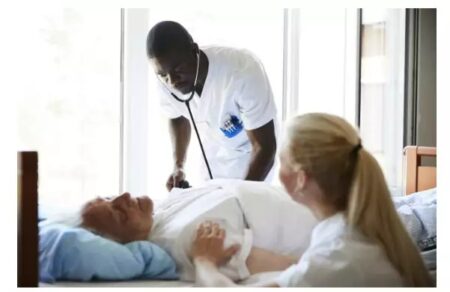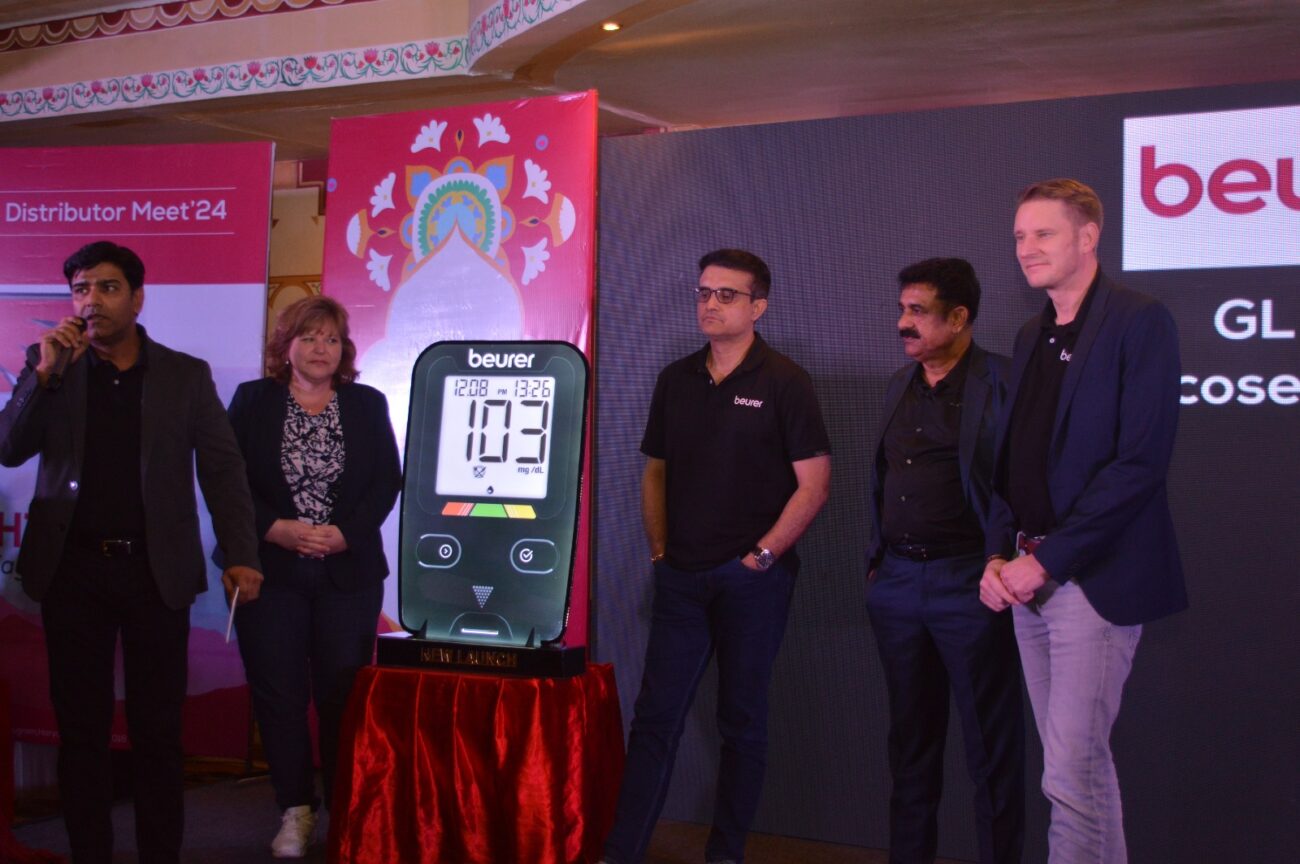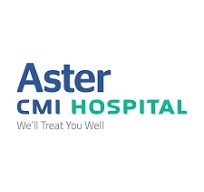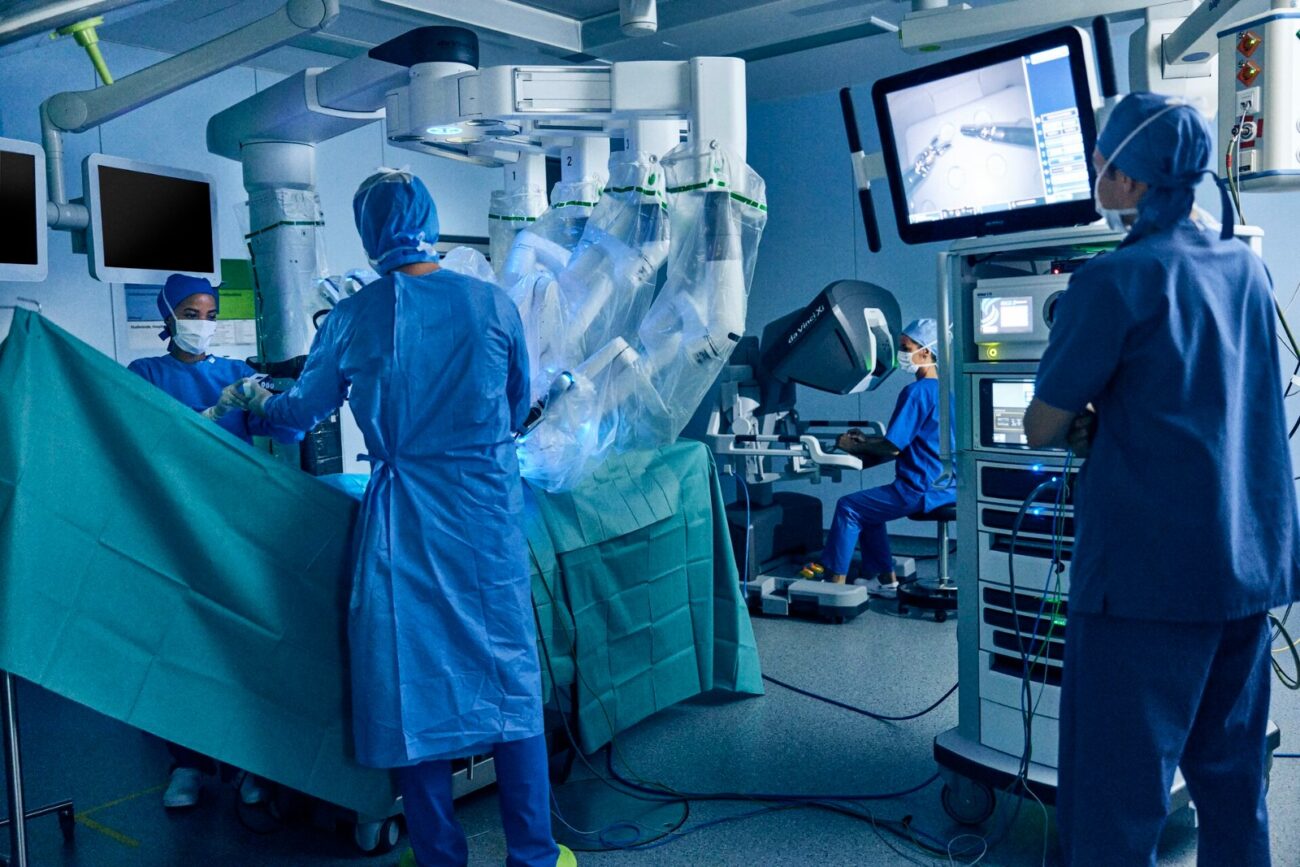INDIA’S FIRST INDIGENOUSLY DEVELOPED SURGICAL ROBOT – SSI MANTRA – FLAWLESSLY EXECUTES ROBOTIC LUNG SURGERY AT NITRD, A FIRST BY A CENTRAL GOVT HOSPITAL
National Institute of Tuberculosis and Respiratory Diseases Hospital, New Delhi conducts its first Robotic Bullectomy surgery using SSI MANTRA Technological advancements, especially in medical science has witnessed a stupendous increase in India. One such technology
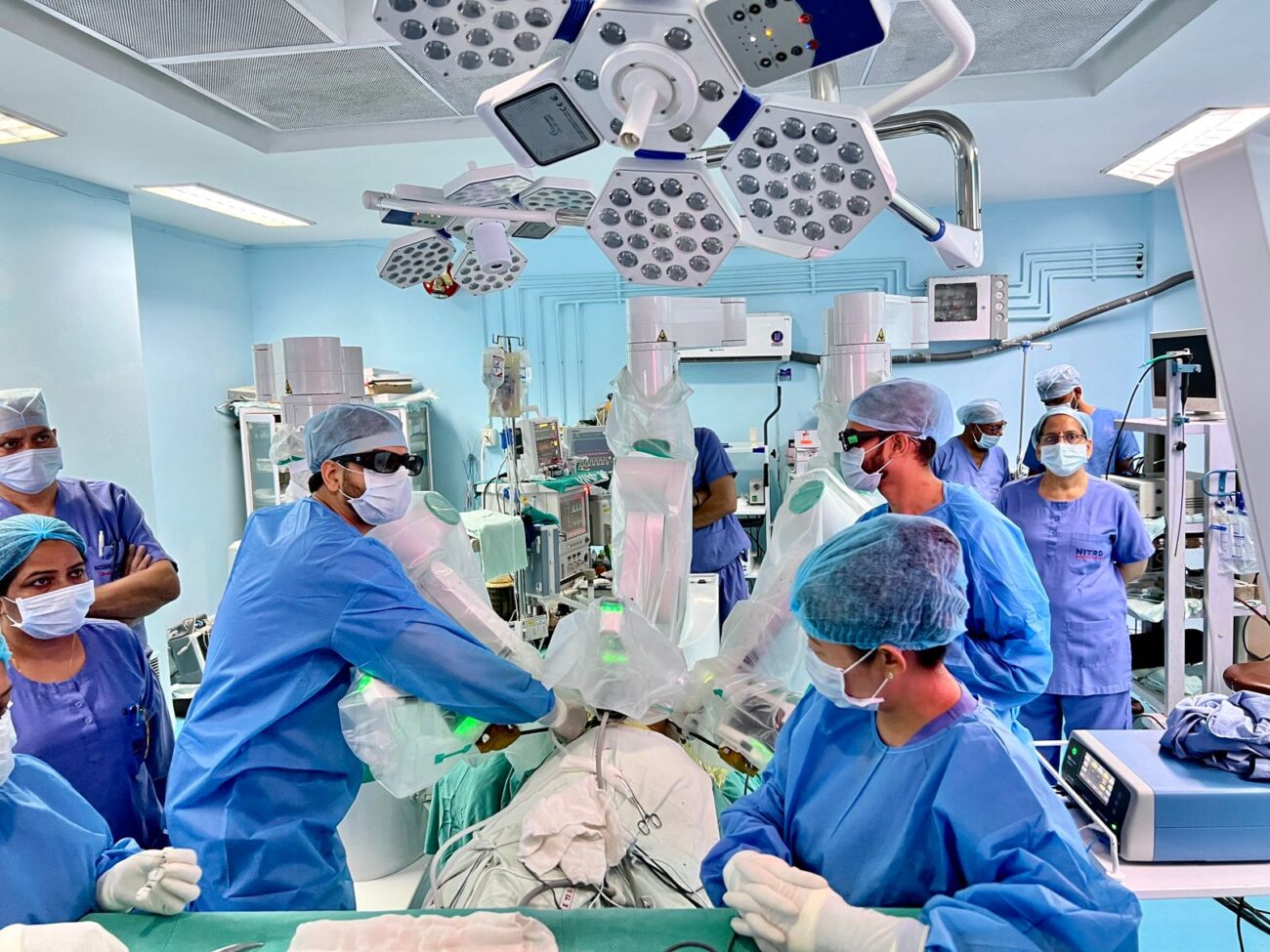
National Institute of Tuberculosis and Respiratory Diseases Hospital, New Delhi conducts its first Robotic Bullectomy surgery using SSI MANTRA
Technological advancements, especially in medical science has witnessed a stupendous increase in India. One such technology is Robotic Surgery. India prides itself with a technologically advanced indigenous robotic system, the SSI MANTRA, the brainchild of Dr. Sudhir Prem Srivastava, a world renown robotic cardiac surgeon and pioneer in the field. SSI MANTRA has been developed with a vision to make the robotic system affordable resulting in the decreased cost of surgeries so that the common man can have access to gold-standard, high-tech and qualitative medical care.
The SSI MANTRA Surgical Robot system recently executed a flawless Bullectomy surgery which involved the removal of an apical bullae within the lung which had developed because of the destruction of the lungs. The balloons grow and compress the lung, making it hard to breathe. If bullae rupture, air escapes into the space between the lung and the chest wall, which can cause the lung to collapse, a condition called pneumothorax. After undergoing multiple episodes of recurrent pneumothorax, the patient decided to have the condition treated surgically.
NITRD (National Institute of Tuberculosis and Respiratory Diseases), a Government of India Institute, under the Directorate General of Health Services, Ministry of Health and Family Welfare is the first Central Government hospital to purchase the indigenous SSI MANTRA Robotic Surgical System.
Dr. Sudhir Srivastava, Founder, Chairman & CEO, SS Innovations and the brain behind SSI MANTRA said, “the success of the Bullectomy Surgery at NITRD using SSI MANTRA further cements the superiority of the system to be able to perform such complex surgeries with utmost precision. This has spurred the team at SS Innovations to scale the next height and take on more challenging surgeries with renewed vigour”.
Performing the surgery on the patient, along with his team of specialists, Dr. Ravindra Kumar Dewan, Director, National Institute of Tuberculosis and Respiratory Diseases said, “SSI MANTRA’s surgeon’s console gives a magnified, close-up view of surgical area compared to the traditional visual assisted system. The manoeuvrability of the robotic arms enabled us to go into various crevices of the thoracic cavity making it far easier to perform the surgery with ease and precision”
Dr. Saraansh Bansal, Consultant Thoracic Surgeon, National Institute of Tuberculosis and Respiratory Diseases said, “The vision of SS Innovations to innovate SSI MANTRA by harnessing technology in healthcare has enabled a Government Institution to procure this system so that the poorest of the poor of this nation can benefit from this technology and improve the quality of their lives”.
Expressing gratitude to SSI MANTRA for giving him a fresh lease of life, the patient who underwent the Robotic Bullectomy surgery, Rajesh Gupta, 28, an executive in a courier firm says, “After medication and other procedures like inserting a tube in my lungs did not give a permanent solution to my problem, I was introduced to robotic surgery at TB hospital. The doctors said that Government Hospitals have low cost surgical options. Since I am the bread winner for the family, it was crucial for me to get back to work soon. The doctors told me about minimal incisions and faster recovery and the cost was also less. So I went in for it. After undergoing the surgery through SSI MANTRA, I feel every Government Hospital, where the economically weaker visit, should have the SSI MANTRA Surgical Robotic System which will enable the poor to get timely and most importantly qualitative medical care, which otherwise they cannot afford”



